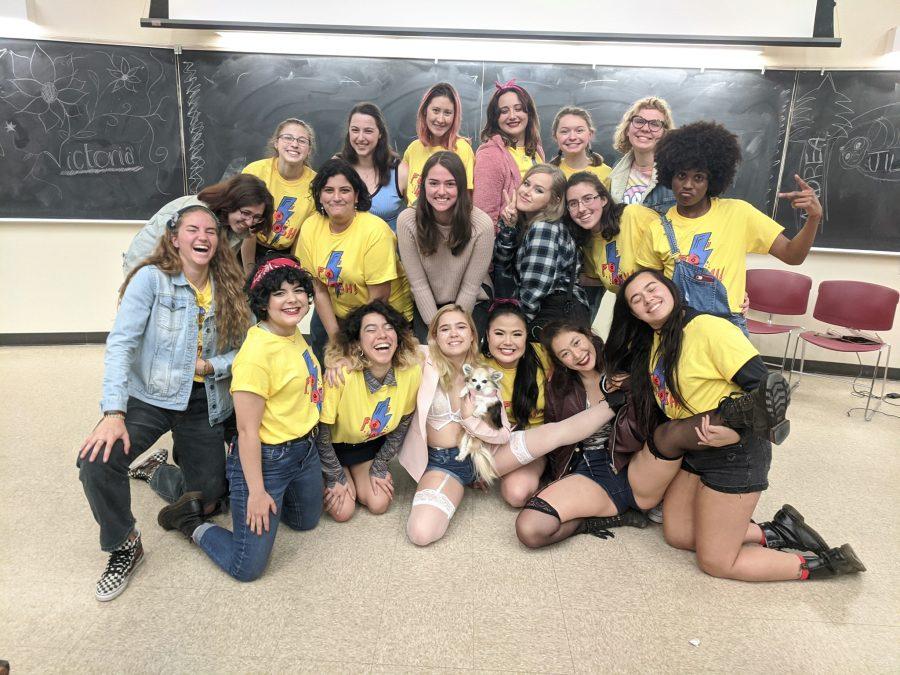It’s about time we stop letting men get away with shock comedy and bad penis jokes.
Comedy has always been seen as a man’s pastime. When people think of funny comedians, the first names they usually think of are John Mulaney, Bo Burnham, and Louis C.K. — all men. Not only this, but many of the prominent male figures in comedy are known for their offensive satire, mostly referring to harsh, unappealing stereotypes of women or offensive commentary on women. If you haven’t seen any of his skits already, Bill Burr does a wonderful impression of the comics I speak about in this article. Although there has recently been a shift toward equal representation of women and men in comedy, there are some women that believe the move toward equal representation will halt.
I have been active in the comedy scene for the past six years of my life. I have worked on different improv teams during high school and currently work with FOOSH, UC San Diego’s short-form team. Throughout the years, I have watched audience after audience idolize men who use shock humor and “slightly pushing it” racist and sexist jokes to maintain their image as the “funny guy.” People would rave over their jokes, even if those men said something “slightly” offensive or off-putting — the majority of an audience would usually overlook the blatant disrespect and lack of humor and laugh along with others.
On the opposite side of the coin, it always seemed like the women on improv teams would always be the first ones to give up their spot during practice or be the first ones harshly criticized for their work and ideas. It would even go as far as women taking a step back from participating in order to make more room for a man in the space. Not only this but, time-after-time, women would have to subject themselves to being the “butt” of a joke or the housewife of a straight-man bit while the men would thrive on being the quirky and original characters.
The only way women would be recognized for the work they did was after weeks of hard work and enough publicity in shows to get their faces out. And even then, the harshest critics of women would be other women in their space, sometimes judging others because, one, women are taught to think more critically of femme comedy, and two, if a woman performs badly it usually is made to reflect the entire gender. It seems as though, if a woman dared to enter the comedy scene, she had to be amazingly funny or she would be cast out. Where men could be mediocre and still praised, women would have to be outstanding comedians only to still be overlooked or downplayed. The weight of constantly seeing this blatant discrimination in comedy made me feel marginalized in a space where I should not have pushing me to look for representation in different mediums: television, literature, and even “Saturday Night Live” when I was desperate.
Shows like “Fleabag,” “GLOW,” “Russian Doll,” or any comedy series starring or made by women, display that modern media does not need to rely on “humorous” stereotypes of women to make people laugh. “Fleabag,” a show about a young woman navigating her way through interpersonal relationships while dealing with her own inner demons, presents a different stereotype of women in media: “Fleabag” is a woman who enjoys sex, vulgar speech, and is selfish in her own respect. Due to the irregularity of this portrayal of women on screen, the comedy series comes off jarring for others but is seen to be hilarious nonetheless. This show is just one example of breaking from the stereotype that the only way women can be funny is if they are ditzy or absentminded, demonstrating how there are other jokes to be made that are just as, if not more, humorous than the “toe-the-line” jokes men seem to find so near-and-dear to their hearts. Society should move from trying to “make the joke work” and desperately looking to find the angle that makes a sexist joke somewhat appropriate because there are a plethora of other jokes that can be made instead of the cheap caricature of a valley girl or the one-liner about how women use the bathroom.
Although more women have moved into the media platform and have taken the stage to show their own comedy expertise, individuals still remain that understand sexism to be legitimate comedy. There has been a major push in the media for equality of gender recognition in comedy; however, if there are still individuals that see an opportunity for a sexist joke and take it, there will still be inequality of representation whether it be on the big screen or a college stage.














